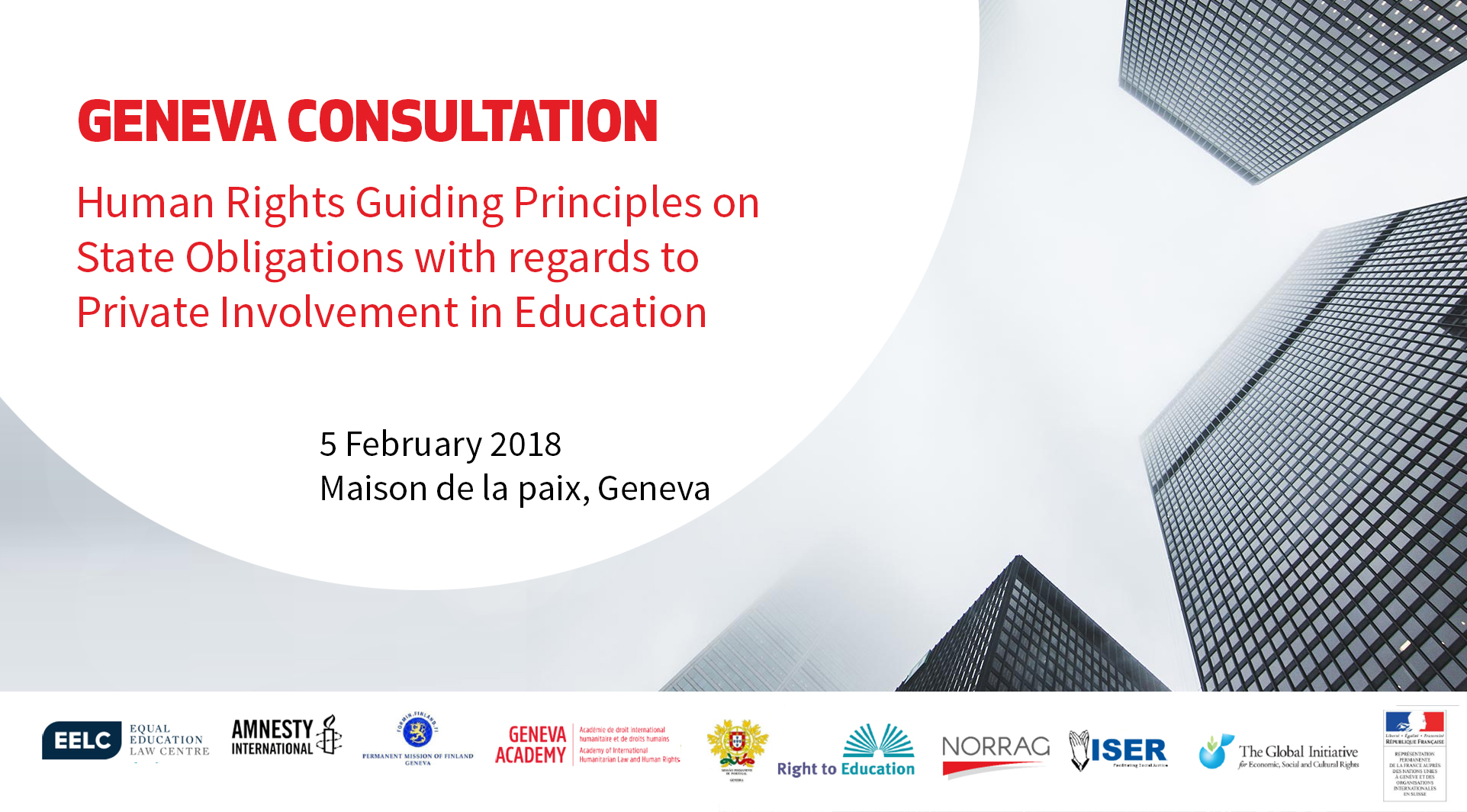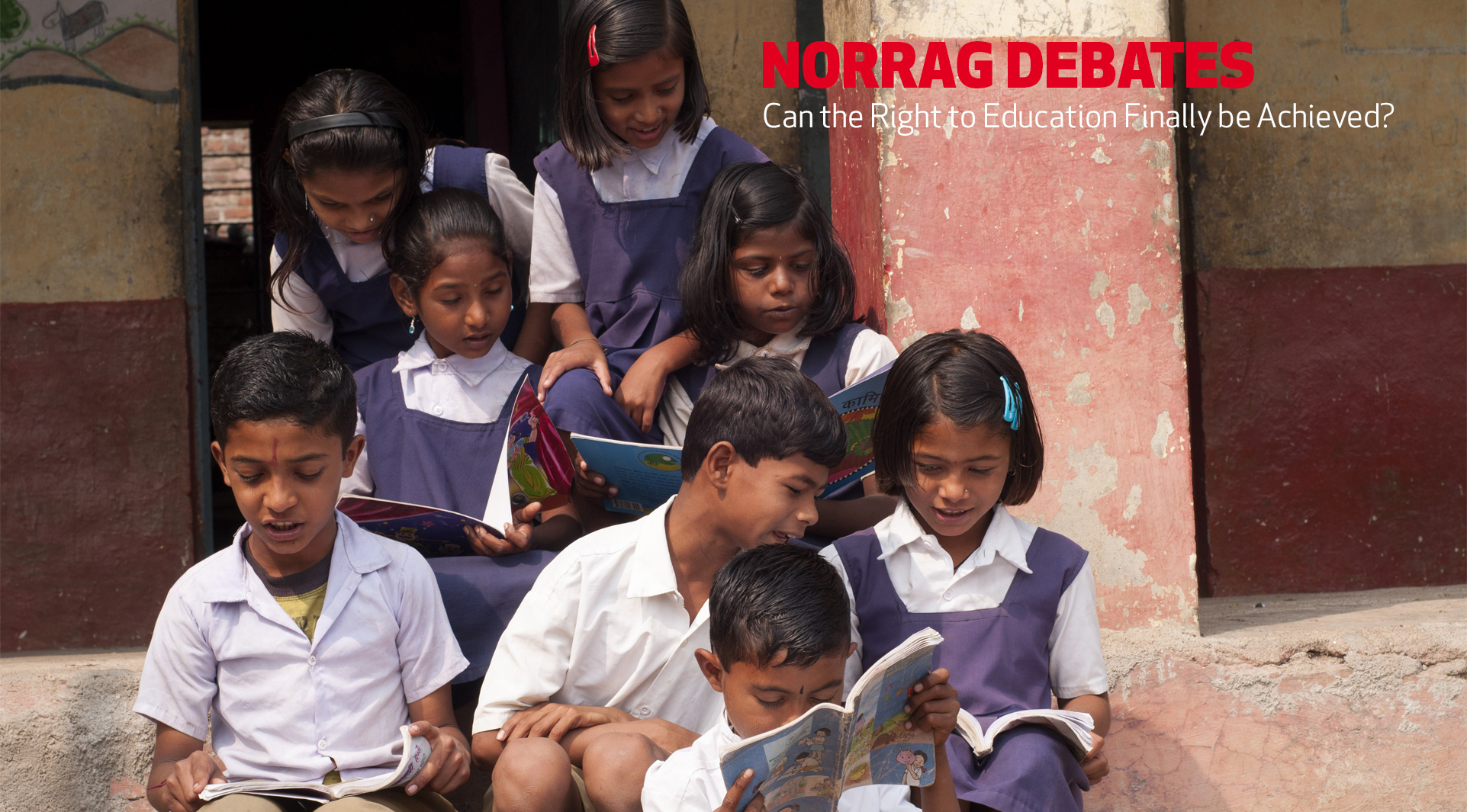26 Feb 2018
Wellspring Philanthropic Fund: Program Officer opening
Wellspring Philanthropic Fund has just posted an opening for an International Children’s Education Programme Officer position within its International Children’s Education team. The opening is based in Washington DC. Interested applicants should submit a resumé; cover letter and salary requirements as well as a writing sample. Details of the application requirements and procedure at this link: https://docs.wixstatic.com/ugd/c18f57_417056efaacb48d99cda01a2e296d651.pdf
21 Feb 2018
Report: Low-cost private schools in Peru: The high cost of low quality?
A new report titled “Low-cost private schools in Peru: The high cost of low quality?” by Clara Fontdevila, Paola Marius, María Balarin and María Fernanda Rodríguez examines issues associated with the proliferation of ‘low-fee’ private schools in Peru. Their growth has coincided with a lack of provision of public education in disadvantaged communities and a... Read More
20 Feb 2018
Debating the Guiding Principles: Geneva consultations on the draft Human Rights Guiding Principles on State Obligations with regards to Private Involvement in Education
The Geneva consultation on the draft Human Rights Guiding Principles on State Obligations with regards to Private Involvement in Education was organised in collaboration with the Missions of Finland, France and Portugal, NORRAG and the Geneva Academy of International Humanitarian Law and Human Rights, together with the 5 organisations forming the secretariat for the Guiding... Read More
13 Feb 2018
Realising the Right to Education: Experiences and Insights
This blog is part of the NORRAG Debates stream on the Right to Education, and follows on from the recent publication of NORRAG Special Issue 01, “The Right to Education Movements and Policies: Promises and Realities,” of which Archana Mehendale and Rahul Mukhopadhyay were guest editors. Archana Mehendale is a Professor at the Centre for... Read More
06 Feb 2018
Critical Reflections on the 2018 World Development Report: If Learning is so Important then Why Can’t the World Bank Learn?
This post was prepared in response to the recent publication of the 2018 World Development Report, LEARNING to Realize Education’s Promise, by Hikaru Komatsu and Jeremy Rappleye of Kyoto University Graduate School of Education. Their recent publications on international learning assessments include “Did the Shift to Computer-Based Testing in PISA 2015 affect reading scores? A... Read More
01 Feb 2018
A Global Sharing Network to Strengthen Countries’ Education Data
This is a follow-up to the blog post published last week in NORRAG Highlights on investing in SDG 4 Data. It is co-authored by Luis Crouch, Senior Economist at the International Development Group (RTI International), and Silvia Montoya, Director of the UNESCO Institute for Statistics (UIS). No strategy – no matter how thorough – can succeed unless it is... Read More
01 Feb 2018
Open for applications: Al Qasimi Foundation Competitive Research Grant
The Sheikh Saud bin Saqr Al Qasimi Foundation for Policy Research is currently accepting submissions for its Doctoral Research Grants, Faculty Research Grants, and Seed Grant opportunities. The Al Qasimi Foundation grants are ideal for individuals with existing research interests in the GCC and Middle East region related to education, arts and culture, urban planning and community development, or public... Read More
31 Jan 2018
Watch Live: Geneva Consultation, Human Rights Guiding Principles on State Obligations with regards to Private Involvement in Education
We will be streaming live on our YouTube channel the opening session of the Geneva Consultation: Human Rights Guiding Principles on State Obligations with regards to Private Involvement in Education. The event is organised jointly by NORRAG, the Missions of Finland, France, and Portugal, the Geneva Academy of International Humanitarian Law and Human Rights, Amnesty International,... Read More
30 Jan 2018
NSI 01 - The Right to Education Movements and Policies: Promises and Realities
The first volume of NORRAG Special Issue (NSI) is now available in the NORRAG Resource Library. NSI 01 is dedicated to examining international frameworks and national policy as well as the challenges of fulfilling the right to education in practice. It highlights the global and national level experience and perspective on guaranteeing the right to education... Read More
29 Jan 2018
Drafting guiding principles on state obligations concerning private schools: Lessons and strategic considerations from a rights perspective
This Blog post is republished with permission as part of the NORRAG Debate stream on the Right to Education. It is published in connection with the upcoming Geneva Consultation on Human Rights Guiding Principles on State Obligations with regards to Private Involvement in Education, an event co-organised by ten partners, including NORRAG, which will take place on Monday... Read More







